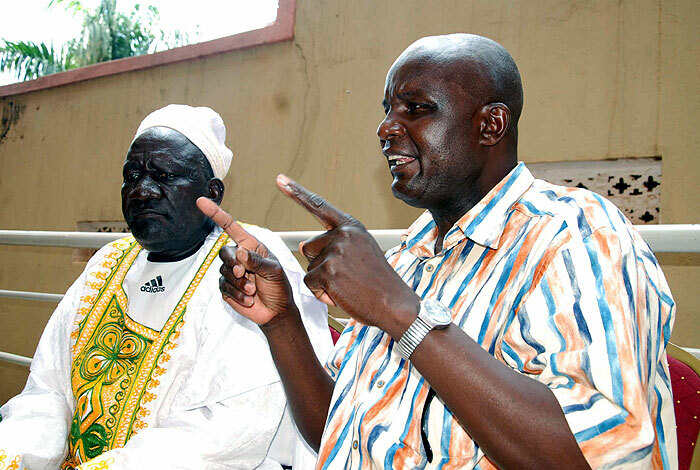Cultural, religious leaders urge gov't on oil
May 30, 2016
"We want the young ones to come and find a leveled ground so that the bad experiences elsewhere do not occur here."

GULU - Cultural and religious leaders in northern Uganda have asked government to review the current oil laws to include clauses which empower chiefdoms in Acholi sub-region to realize economic benefits from the exploitation of oil and gas resources.
"The current legal regime does not offer chiefdoms enough opportunities to benefit and empower our subjects using the sector," said the Chief of Lamogi, Otto Otinga Atuka Otoya.
They want the Public Finance Management Act to be revised to increase the percentage of oil royalties that was proposed for the chiefdoms.
The chief made the remarks during a two-day regional dialogue with cultural and religious leaders in Extractives-producing Areas in Gulu district. The dialogue was organized by ActionAid Uganda.
Otoya said that while they appreciate the 1% royalty given to them by the parliamentary committee on finance, it is too little compared to the workload.
There are 54 chiefdoms in Acholi sub-region but according to Otoya all these seem to be discontented with the country's oil law which grants cultural institutions 1% share of the oil revenues. He said as cultural leaders, they have submitted an application to Parliament for a 12.5% of the royalties.
Otoya advised government and oil companies to include chiefdoms in all compensation exercises in northern Uganda given that chiefs are considered cultural custodians.
On his part, the Chief of Ariya, Edward Picho Onyweko said their prayer is that oil should not be a curse but a blessing to the present people and the future generation.
"We want the young ones to come and find a leveled ground so that the bad experiences elsewhere do not occur here. Therefore we need an integrated approach."

Cultural leaders have submitted an application to Parliament for a 12.5% of the royalties. (Credit: Abou Kisige)
Oil fields in Nwoya district cover more than 800sq km covering areas of Ryek, Para, Gonya, jobi and Jobi east, among other discoveries.
"What is paining us cultural leaders is that government is not sharing any information with us, which has kept us guessing what is going on," said Onyweko.
He said plans to exploit the oil deposits in the area are in mature stages but little has been shared with cultural leaders, religious leaders and locals and all they see are aircraft flying over the said oil fields.
David Matonga, governance office ActionAid, said it is very important not only to cultural leaders but also people who interact with communities like religious leaders to be equipped with true and authentic information about the oil and gas resources for transparency.
"Providing information to these leaders is key because in turn they provide it to their flock and among themselves for updated discussion on matters of oil and extractives governance," he said.
For the last two years, oil companies and the ministry of energy and mineral development have been holding engagements with communities in the oil producing areas to brief stakeholders about their operations.
Sr. Theresa Anguparu of Sisters of Secret Heart Moyo district said locals are ready to support government in all its efforts to develop the petroleum industry, adding that government should observe the rights and entitlements of the people of northern Uganda.
